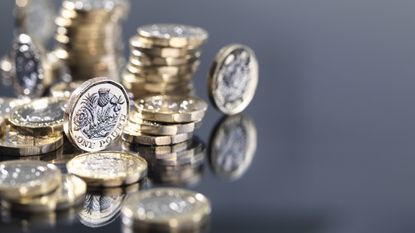Looking at how to get out of debt? Debt is a grim reality for a great many of us – roughly half of us are in debt, in fact, with the average amount we owe exceeding £6,000. Whatever your reasons for wanting to finally get rid of your debts this year – the need to be debt-free in order to take out a mortgage, or a change in circumstances – one thing is certain: you must make a plan in order to actually get to that promised debt-free land.
In fact, the reason why so many people remain in debt is because they don't have a detailed plan. Especially if you have more than one loan and/or credit card, it can be difficult to keep track of just how much debt you've accumulated. Fortunately, many, many people have successfully cleared their debts (often in less time than you might think possible) and so can you, if you follow these simple tips.
1. Face up to the amount of debt you have
This is essentially a variation of, 'admitting you have a problem is the first step', and debt can be similar to other problems people face in the sense that denial is often easier than admitting the severity of the issue.
Confront the amount you owe head-on; it won't be pleasant, but it's necessary. You might find it helpful to switch back to paper statements, for example – there's something very powerful about seeing the numbers on an actual document, rather than keeping them hidden away from sight by not checking your account online.
2. Decide on a repayment strategy
It's very important to work out how you'll be going about clearing your debts. Making more than the minimum repayments goes without saying, but if you have more than one loan, you'll need to decide where to start. Snowballing is a popular method for reducing debt: you start by identifying the smallest loan you have, repaying that in full, then moving on to the next smallest one, until only your largest debt (your student loan, for instance) is left.
Another strategy is centralising your debts by reducing the number of credit cards you have. Make one of them a priority and try to pay (a lot) more on it than the others, until it's completely cleared off. Then close this credit card and move onto the next one, until, ideally, you only have one credit card for emergencies.
3. Reduce your spending
This is stating the obvious, but it can seem harder to implement than it actually is. If it helps, schedule a meeting with your bank – they often have advisors who can help you identify areas of problem spending. Failing that, a bit of common sense is in order: do you really need this or that item?
If you're fond of online shopping, try the three-day method: hold off buying the item for three full days, then decide if you still really need/want it. You'll be surprised by how many times the coveted object turns out to be something you would've bought purely on impulse.
Next, do a spending review of your food habits. This can be very uncomfortable (after all, we all need and like to eat), but, inevitably, you'll find food spending patterns that are harming your wallet. Are you prone to buying the same items twice, forgetting what's in your fridge? Make a list of what's in it and stick it on the door. Get a takeaway coffee every single morning? Buy a reasonably priced coffee machine or coffee press and start drinking coffee at home. These are all small changes that can amount to significant savings.
4. Avoid 'pay later' online platforms
The explosion of 'pay later' platforms that allow you to order an item and pay later (usually within a month) is not great news for those of us prone to accumulating debt. It's far too easy to forget how much it was you spent on something by deferring payment. If you're trying to get out of debt, your mantra should be: 'if you can't afford it now, don't buy it'.
5. Be inspired by others' successes
Finally, it's important not to get too down or panic: accept that you need to make changes, but think positively. There's a wealth of literature out there on getting out of debt, as well as lots of blogs that trace people's journeys out of debt – and even towards financial independence. Take advantage of these stories – inevitably, some of them will be just like yours.


